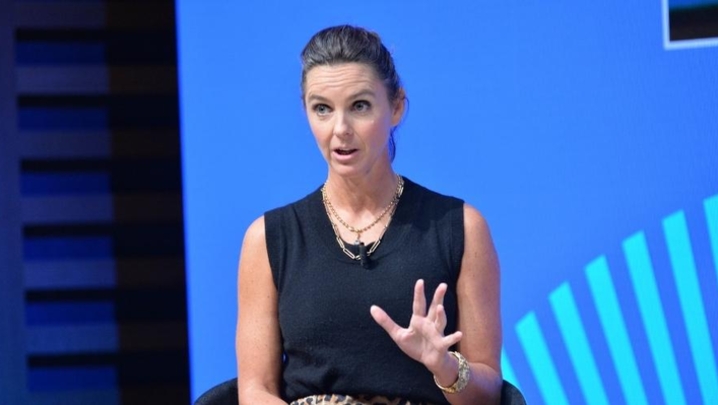A high-powered RTS panel draws the battle lines in the debate over Channel 4’s future.
Few broadcasting controversies generate as much heat as the vexed topic of selling off Channel 4 – and so it proved at an engaging RTS debate held late last month, “Levelling up: How much could privatisation change Channel 4’s remit?”.
The remit has evolved over time. Since the 2003 Communications Act, the broadcaster’s remit has been largely voluntary. David Elstein, the former Thames, Sky and Channel 5 executive, provocatively claimed that the remit is nowadays “mostly mythical."
He alone among the RTS panellists supported the Government’s proposal to privatise the television company. He told the RTS that, currently, Channel 4’s only obligations were to air four hours of news in peak time each week, plus four hours of current affairs, not necessarily all in peak time.
“Everything else is voluntarily,” said Elstein. “There is no requirement for Channel 4 to broadcast any new programmes at all other than news. It’s a 70% repeats channel.” He added: “Privatisation is the last opportunity the Government has to impose a tougher remit on Channel 4 and to require that from new owners.”
Unsurprisingly, this characterisation of a network commonly seen as edgy, mischievous and original – and whose recent shows, such as The Lateish Show with Mo Gilligan and the coverage of the Tokyo Paralympics, encapsulate the spirit of the channel’s original remit – proved contentious.
Two of the other three panellists were quick to come to Channel 4’s defence. Melanie Leach, a successful independent producer of 25 years’ standing, predicted that the UK’s world-beating indie sector would collapse were it not for state-owned, non-profit-making Channel 4. It, of course, commissions all its programmes from third parties.
She recounted how her own career, which benefited from working for Plymouth-based Twofour Productions, then a young independent, would have been very different without Channel 4.
“If Channel 4 hadn’t supported small start-ups, I would have thought twice about whether I wanted to take that leap and entrepreneurial risk,” she added, referring to her own new company, South Shore Productions. She argued that selling off Channel 4 would halt job creation in the UK production sector in its tracks and prevent independents building their businesses by using the so-called terms of trade to retain their intellectual property.
Leach maintained that Twofour’s successful Educating… strand on Channel 4 would never have been made were the station privately owned. Nor would Joe Lycett’s Got Your Back, which had brought young audiences to consumer journalism.
“Channel 4 serves more young audiences than any other PSB in the UK, and that audience is part of the remit,” stressed Leach. “Their digital numbers speak for themselves.”
Alan Clements, ex-STV executive and now the boss of independent Two Rivers Media, warned that privatising Channel 4 would spell disaster for UK indies and their hard-won terms of trade. It was these that made “quite a difficult business” workable.
“For me, privatisation is a solution seeking a question,” he said. “Channel 4 works perfectly well supporting a vibrant creative sector.” He traced the Government’s enthusiasm for selling the broadcaster to August 2019, when former Channel 4 news and current affairs chief Dorothy Byrne gave her MacTaggart lecture, in the course of which she labelled Boris Johnson “a liar”. His Government’s urge to change the status quo was simply “vindictive”, Clements suggested.
While the remit today forces few obligations on Channel 4, the broadcaster still possesses a unique culture, he said: “As producers, when we’re in development, we know when somebody has come up with an idea that’s right for Channel 4, because it’s mischievous or diverse. It goes beyond what’s written down in legislation.”
The fourth panellist, Marcus Ryder, the ex-head of current affairs at BBC Scotland who is now head of external consultancies at the Sir Lenny Henry Centre for Media Diversity, stressed the importance of separating Channel 4’s remit from its ownership model.
He reminded the RTS that, before the 2003 Communications Act, Channel 4 was required to broadcast seven hours of education programmes a week plus three hours of multicultural content and an hour of religion.

Ryder wanted the debate over Channel 4’s future to broaden its scope to include the “vital” matter of how it is regulated by Ofcom and how it fits into the overall UK broadcasting system. “We need to make sure that we have a channel that is radical and represents diverse views,” he stressed.
In today’s world of “peak TV”, what did Channel 4 broadcast that could not be found elsewhere? Elstein didn’t mention any specific programmes, but described the current remit as much “fluffier” than what had gone before, when regulators enforced PSB across a range of genres.
“The latest mantra from the Channel 4 Chief Executive is that its job is to ‘Change the world through entertainment’,” scoffed the ex-ITV boss. He claimed that the average UK adult got “one minute per day of public service content from Channel 4”.
Ryder sounded nostalgic as he recalled some of the station’s early multicultural shows, such as the black sitcom Desmond’s and black current-affairs show The Bandung File, and the backing given to the Black Film Collective in the 1980s.
He castigated Channel 4 for its insensitivity in failing to remove Bo’ Selecta from All 4 until last year’s Black Lives Matters protests drew attention to how it used blackface to depict black entertainers. “Channel 4 has apologised for what it now acknowledges was highly offensive,” noted Ryder.
Regarding potential buyers for the station, the “very obvious ones”, according to Elstein, were Discovery, Viacom and Comcast. There was room for a lot of efficiencies. He recalled that, when running Channel 5, he proposed merging 4 with 5, which could have saved £130m a year in backroom costs.
“Massive savings” could be generated were Viacom, owner of Channel 5, to buy Channel 4. The money could then be reinvested in content. “There is a lot of opportunity for outside buyers,” Elstein insisted.
He said the broadcaster’s wage bill was “the highest of any in UK media”, as its 912 staff earned an average of £100,000 a year. “If I owned Channel 4, I would cut that very large wage bill,” he promised.
Elstein had no doubt that buyers would emerge, although the terms of any sale were key: “This is an opportunity for the Government to impose tougher rules on a privatised Channel 4 than it is able to impose on a publicly owned one. This is paradoxical but true.”
Ryder agreed that the regulation of private companies could be tougher than that of public sector organisations, citing the phenomenon of “regulatory capture”, whereby regulators could be found working “hand in glove with the people they were regulating”.
While acknowledging the importance of Channel 4’s distinct culture, much related to Ofcom’s role. “Channel 4’s culture is a legacy of the old tough remit that was imposed by regulators,” opined Ryder, referring to Ofcom’s predecessor, the Independent Television Commission. “Channel 4 needs tough and rigorous regulation.”
Clements was sceptical that a Channel 4 owned by a US media company would do anything to protect British independent producers: “Companies such as Viacom couldn’t care less about the UK indie sector, and the idea that any savings would be automatically reinvested in programming is fanciful.”
He praised Channel 4’s new out-of-London strategy, which he said was “irreversible” as real money was finally being spent by the broadcaster in the nations and regions.
“This year, Channel 4 will spend 50% of its original content budget in the nations and regions,” chipped in Leach. “And it hit that quota two years ahead of target.”
Ryder reminded the panel that it was Ofcom that pressured Channel 4 into becoming a devolved broadcaster.
Not to be outdone, Elstein recalled how the Channel 4 board had “almost resigned” when faced with the prospect of having to give up the station’s London HQ.
Report by Steve Clarke. ‘Levelling up: How much could privatisation change Channel 4’s remit?’ was held on 19 August. The chair was Ciaran Jenkins, Scotland correspondent at Channel 4 News, and the producers were Lisa Campbell and Balihar Khalsa.







